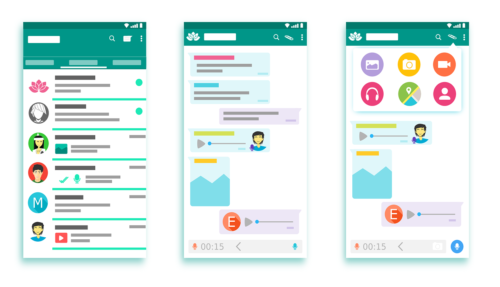
How broadly does the First Amendment’s free speech clause apply to students? This is a question that American courts have been interpreting for quite some time. Social media has made it more complicated.
The First Amendment guarantees the right to free speech without government interference—with certain limits that are designed to protect the public.
Today, social media is a hub of information-sharing, self-expression and, but also and too often, cyberbullying. Where do First Amendment rights end, and when does a school have a right to discipline students for what they say online—even when the medium is not maintained by the school?
Courts are divided and the law is unsettled. It is a prime issue of higher education law to reach the Supreme Court.
The Standard for School Controls on Free Speech
The standard for when a school can infringe your free speech rights is Tinker v. Des Moines 393 U.S. 503 (1969), in which the Supreme Court held that, in the words of the ACLU, “students do not lose their First Amendment rights simply by virtue of walking into school. Nor do they give up their right to speak out outside of school simply by virtue of being a student.”
Tinker holds that a school can regulate student speech if it interrupts school activities, seeks “to intrude in the school affairs or the lives of others,” interferes with schoolwork or causes “disorder.”
But the justices in 1969 likely did not anticipate how social media would complicate the noisy world of speech or the new wave of college administrators bent on monitoring students’ private lives.
What Are Courts Saying Today
Two recent cases from the Circuit Courts of Appeals, the highest courts below the Supreme Court, show the difficulty both courts and higher education lawyers face. Keefe v. Adams, 840 F.3d 523, 525–26 (8th Cir. 2016) and J.S. v. Blue Mountain. Sch. Dist., 650 F.3d 915, 920 (3d Cir. 2011), illustrate a split between circuit court rulings.
On one hand, Keefe holds that a student’s removal from his nursing program due to threatening Facebook posts did not violate free speech rights.
What did the nursing student say? He was apparently upset by having to use old-fashioned wood pencils (among other things) rather than mechanical pencils. He opined that a mechanical pencil sharpener should be used to puncture someone’s lung – a procedure he rendered in medical Latin: “hemopneumothorax.”
That was enough to have other students report him as “threatening” and complain they were “extremely uncomfortable” and “nervous.” The student doubled down and started throwing around the “B” word. Then he claimed his Facebook page had been hacked.
The school’s administration quickly sprang into action. Seems unprofessional to me, decided the Dean of Students, especially the “B” word. The court sided with the Dean.
This is because “a professional school may adopt a profession’s code of ethics as part of its curriculum, and that a determination of non-compliance would almost always be based partly on a student’s speech.”
This interpreted the regulation of speech as a kind of edifying lesson in professionalism, part of a professional or trade school’s curriculum. In the defining the curriculum, the discretion of schools to do whatever they want is the strongest.
On the other hand, the Third Circuit held in J.S. that a high school student’s fake online profile mocking her principal did not flunk the Tinker standards. The court found no “substantial disruption” at school, given that mocking the principal (and what could be a more hallowed pastime?) was off-campus, outside school hours, and not at a school-sponsored event.
Whether a student is in college or K-12 and whether the school is private or public will also make a difference in the case. Can high school students be thrown out for lacking “professionalism”?
The McLellan Library at Michigan State University, which is devoted to answering free speech questions for students, suggests you check your school’s code of conduct for more information about on-campus expectations. Another excellent resource is the Foundation for Individual Rights in Education (FIRE), which has been fighting for student and faculty free speech rights for over 20 years.
If you believe your school has infringed upon your free speech rights—or that they are mistaking cyberbullying for free speech—document your case as much as possible and contact an experienced lawyer right away. An attorney will be able to evaluate the merits of your case and help you obtain justice.